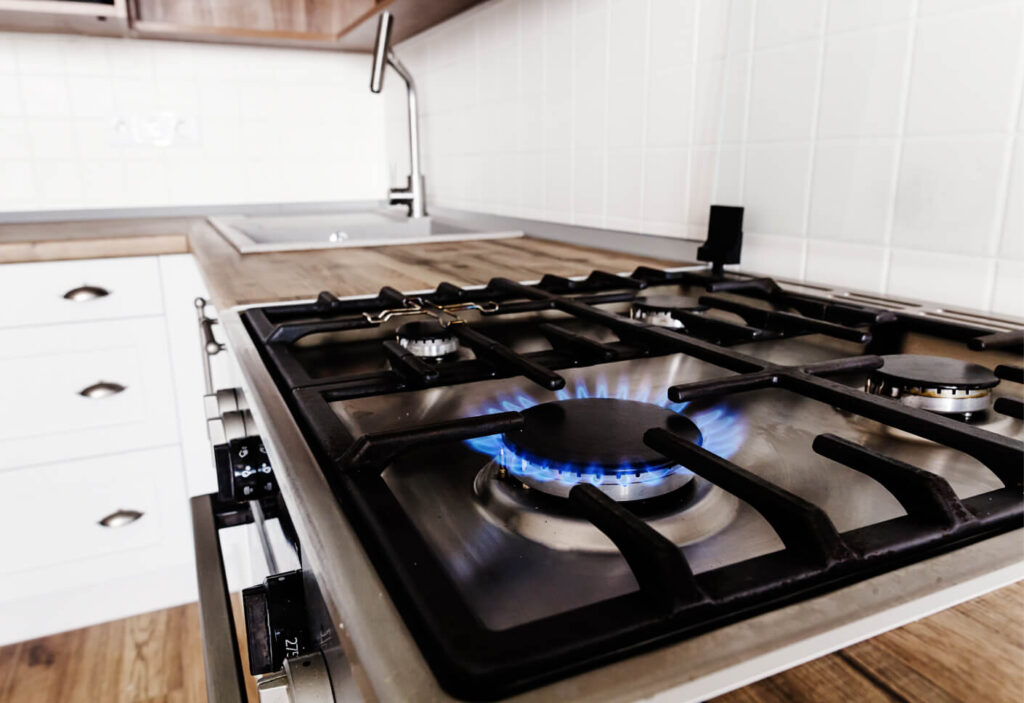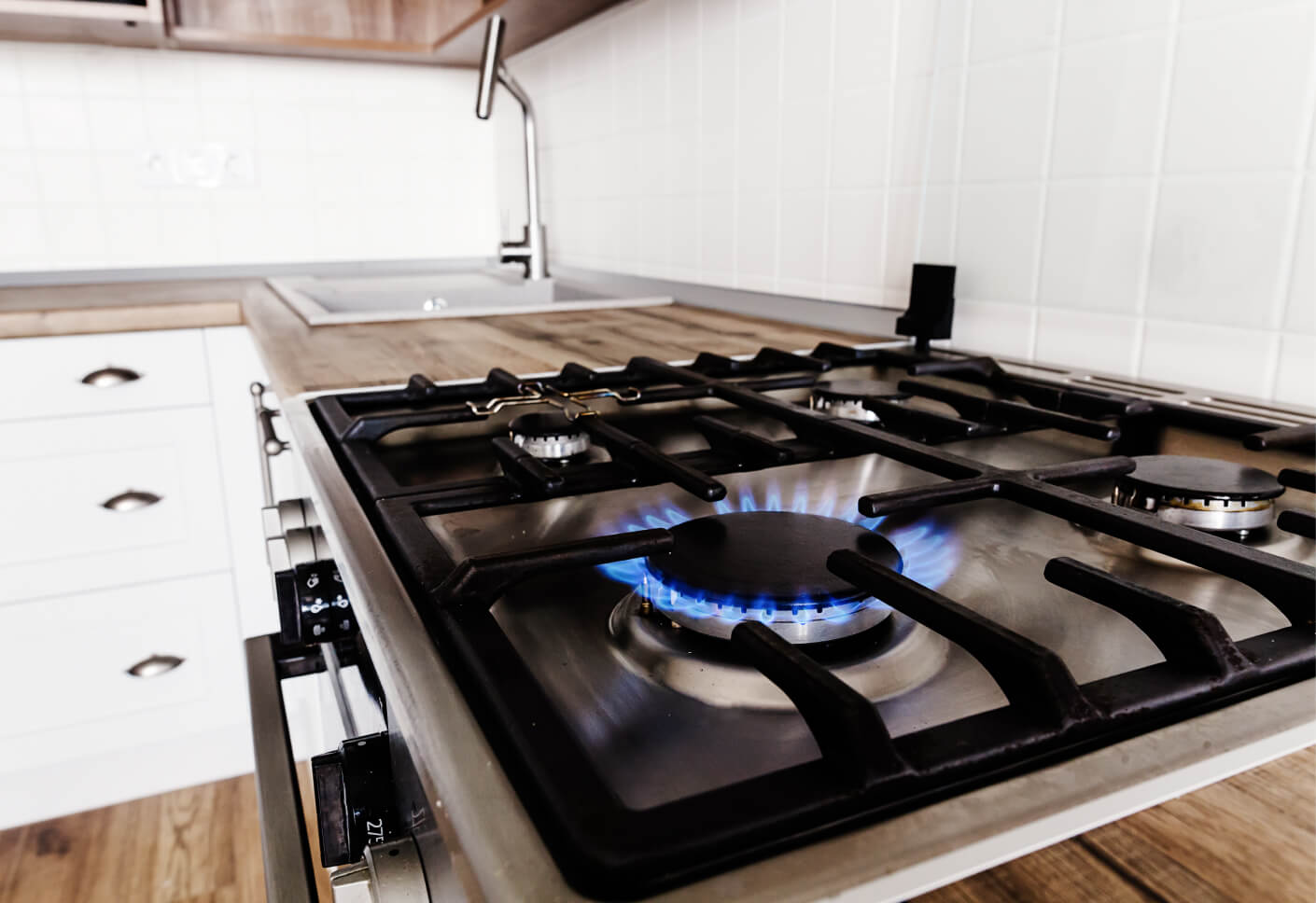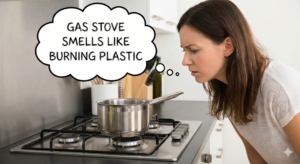I’ve always loved cooking. It’s where I unwind, experiment, and express love through food. But the day my gas stove smelled like gas, I froze mid-recipe. That sharp, metallic scent? It instantly made my stomach churn with worry. I asked myself, “Why does my gas stove smell? Did I leave it on? Is there a leak?” (Top 5 Reasons Why Your Gas Stove Smells Like Gas)
If you’ve been there—staring at your burner in panic—you’re not alone. That smell is scary, and it should be. Gas leaks are nothing to ignore, and your nose might just be saving your life.
In this post, I’ll show you exactly what causes that smell, how to check for danger, and what tools or fixes can give you peace of mind. I’ll also share a few smart Amazon finds like a “gas leak detector spray” that made a huge difference in my own kitchen safety setup.
Let’s dive in because your safety (and your dinner) depends on it.
The Hidden Dangers of That Gas Smell
Let’s start with the truth: if your gas stove smells like gas, it’s not just annoying—it can be dangerous. Gas leaks can cause dizziness, nausea, and even explosions in worst-case scenarios. That smell you’re noticing? It’s mercaptan, a chemical added to natural gas to help detect leaks. It’s your kitchen’s way of screaming, “Hey! Something’s not right!”
That’s why it’s so important to recognize why your gas stove smells, and what you can do to fix it safely.
Contents

Top 5 Reasons Why Your Gas Stove Smells Like Gas
1. Burner Left Slightly Open
Yep, the most common (and scariest) mistake is human error. Sometimes we twist the knob just a little without igniting it, and gas silently seeps out. The stove looks off, but gas is filling the room.
It’s happened to me more than once—especially with my curious toddler playing near the kitchen knobs. Now I double-check every burner when I’m done cooking.
Quick fix: Always turn burners fully off. You can even use knob covers for child safety.
2. Faulty Gas Regulator
The gas regulator controls the pressure between your gas cylinder and the stove. If it’s cracked, loose, or just worn out, gas can escape even when everything looks fine.
When my stove started hissing faintly and smelling like gas, the culprit turned out to be a loose regulator knob. I replaced it with one from Amazon (just search for “LPG gas regulator safety valve”) and the smell disappeared instantly.
You can try a “gas leak detector spray” around the regulator area. If bubbles form, gas is leaking.
3. Loose Pipe or Connection
Gas lines wear out. Over time, the rubber pipes that connect your stove to the cylinder or wall may dry out, crack, or become loose—especially if your stove gets pushed around during cleaning.
A few months back, I found the rubber tube behind my stove almost halfway off its nozzle. The leak was slow but steady.
Check yours right now. If you hear a faint hiss or smell gas when the stove isn’t on, that pipe could be the villain.
I now replace my pipe every 2 years and use “LPG-compatible rubber tubing” which I found online bundled with a “gas pipe clip set”—super helpful.
4. Pilot Light Problems
In older stoves with a pilot flame instead of electric ignition, sometimes the flame goes out without you noticing. But gas keeps flowing.
That happened to me once during a power outage. My stove smelled like gas for 20 minutes before I realized the pilot had gone out. I felt awful thinking of what could’ve happened.
If you use a pilot light stove, keep a gas leak alarm nearby. It can literally save your life.
5. Worn Out or Cracked Tubing
You may not see it easily, but your gas stove’s internal tubes—especially those leading to individual burners—can degrade with time. If your gas stove smells like gas even when everything is off, this could be the issue.
Only a qualified technician should inspect or replace internal parts. But never ignore persistent smells, even faint ones.
You can use a deep cleaning kitchen cloth to regularly wipe around burner areas—sometimes grime buildup hides cracks or leaks.
Quick Home Checks to Stay Safe
If you’re wondering why my gas stove smells, here are 3 quick things you can do right now:
- Sniff each burner individually — This helps isolate the source.
- Use soapy water — Apply around connections. If you see bubbles, gas is leaking.
- Listen for a faint hissing sound — It’s a classic sign of a small leak.
And most importantly, never ignore the smell. Even if it’s weak.
Life-Saving Products That Help Detect Leaks
Here are 3 tools I personally use to keep my kitchen safe:
- “Gas leak detector spray” – Spray around pipes and valves. Bubbles = trouble.
- “Plug-in gas leak alarm” – Alerts you immediately if gas levels rise.
- “LPG safety regulator valve” – A smart upgrade that auto-shuts if leaks are detected.
I found all three on Amazon, and I can’t tell you how much better I sleep knowing I’ve got backup.
Final Thoughts – Don’t Ignore That Smell
If your gas stove smells like gas, you owe it to yourself—and your family—to act fast. It may be something simple like a loose knob. Or it may be something serious like a damaged pipe. Either way, now you know what to look for and how to respond.
A gas smell in your kitchen is never “just normal.” It’s a warning sign. You’ve got this. Take the small steps now that can prevent big problems later.
And hey—stay safe and keep cooking. Because food is love. But safety? Safety is peace.
This post contains affiliate links to products on Amazon.in. As an Amazon Associate, I earn from qualifying purchases — at no extra cost to you. I only recommend products I personally use or believe will help you in your kitchen journey.




